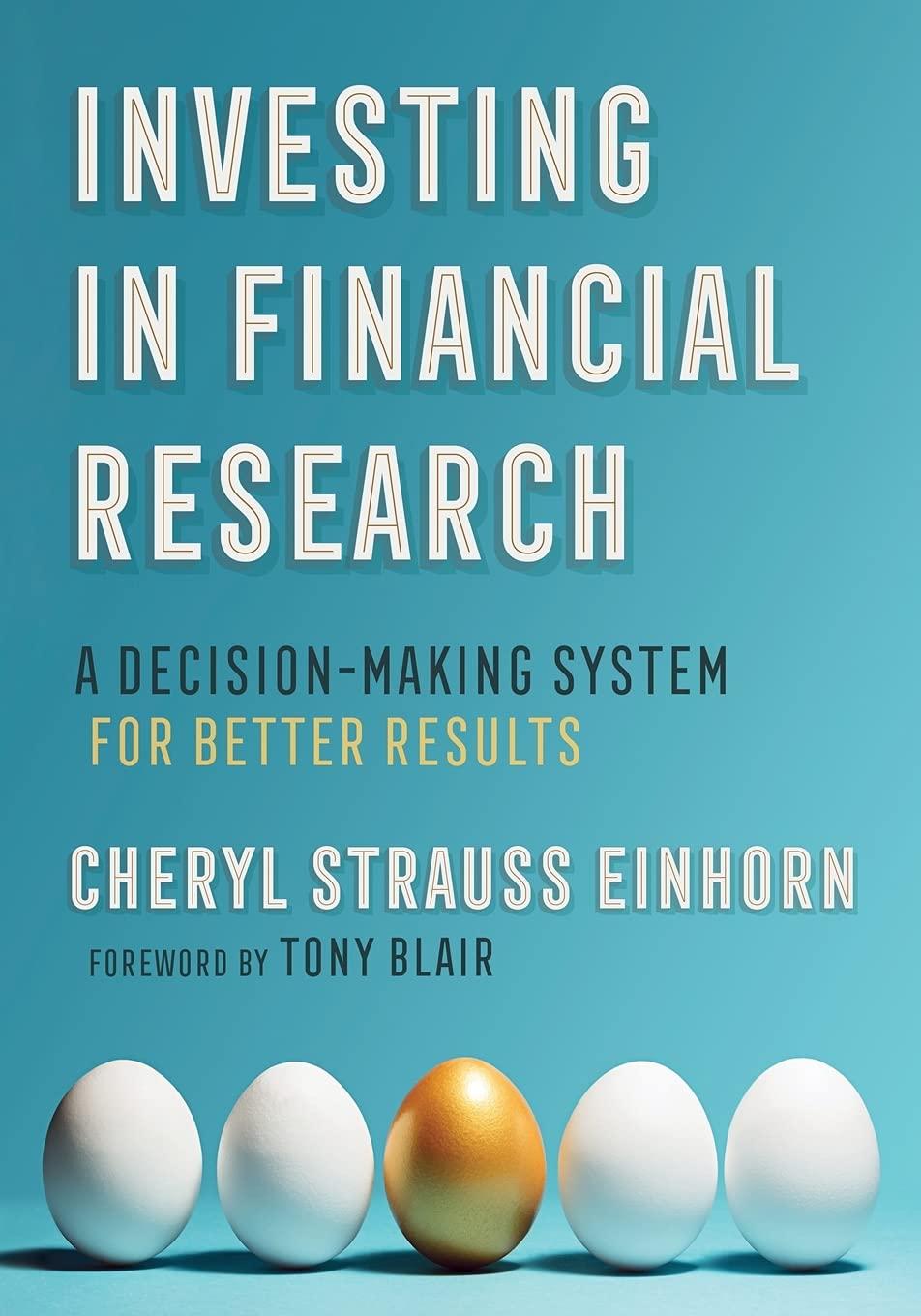Question
You are a financial adviser and the following information is an extract of data you gathered as part of fact finding during an initial client
You are a financial adviser and the following information is an extract of data you gathered as part of fact finding during an initial client consultation for married couple Peter and Candice Lau.
- Candice works as an interface designer for the government and Peter works as a nurse for a private hospital.
- Peter and Candice would like to know how much money they will receive after paying tax and expenses for the year ended 30th June 2016. They would like advice on how to reduce their tax liability in the future.
- Candice and Peter are expecting their first child next month. They would like financial advice to decide how to the care for the child. Peter is deciding whether he can switch to part time work to care for their child. He has two options:
o Return to work full time and earn $54,000 p.a. salary but incur day care fees of $24,220 per year (after the Child Care Rebate has been deducted)
o Return to work part time and earn $27,000 p.a. salary but incur day care fees $6,344 per year (after the Child Care Rebate has been deducted)
Candice's parents will invest $2000 in an investment bond (tax free) account for the child when it is born. Candice's parents have agreed to put in an addition $500 a year for the first 10 years and $600 for the next 10 years. Candice and Peter want an estimate of how the investment will be worth 20 years from now, if it is invested in either two investment options:
o AMP Moderate Fund - Medium risk- Expected return of 4.08 % p.a.
o AMP Specialist Australian Share Fund- High risk- Expected return of 5.48% p.a.Income for year ended 30th June 2017:
Income type
Amount
Gross Salary income- Candice Lau
$98,000
Gross Salary income- Peter Lau
$54,000
Interest -Savings Account
$250
Dividend- ANZ Shares
$350 (Imputation Credit $150)
Dividend- James Hardie Shares
$160 (Imputation Credit $60)
Distribution- UBS Bond Fund
$1,250
Distribution- APN Asian REIT
$640
2
Expenses for the year ended 30th June 2017
Item
Amount
Rent (450 per week).... ......................................
23,400
Electricity/Water/Gas ........................................
1,140
Telephone/Mobile ............................................
1,800
Pay television/Internet .......................................
1,100
Insurance - home/contents ..................................
1,200
Insurance - car ...............................................
3,075
Credit cards repayment ($500 a month for 12 months).
6,000
Car loans repayment ($8000 a year for 5 year term).....
8,000
Petrol/maintenance ...........................................
6,500
Car registration ................................................
720
Public transport ...............................................
2,800
Other expenses
Food ............................................................
13,500
Clothing/Haircuts/Beauty ...................................
4,500
Medical/Dental ................................................
2,500
Entertainment/Dinners .......................................
6,000
Prof. Nurse Membership (Peter)..................................
1,000
Gifts - Birthdays/Christmas .................................
5,000
Total...........................................................
88,235
Current Assets and Liabilities 30th June 2017
Assets (Ownership)
Current valuation $
Liability (Ownership)
Current valuation $
Home Contents (Joint)
20,000
Credit cards (Joint) Includes the annual interest cost
6,000
Car (Joint)
55,000
Car loan (Joint)
5 year term at 12%
30,000
Investments-
Savings Account (Joint)
ANZ Shares (Candice)
James Hardie Shares (Candice) UBS Bond fund (Candice)
APN Asian REIT (Peter)
10,000 6,000 6,000
35,000 10,000
Superannuation -Peter
-Candice
35,000 20,000
3
Required:
- Calculate Peter and Candice's after-tax income and savings ratio for the year ended June 2017. Explain one way in which Peter and Candice could reduce their tax liability and show the effect this strategy would have.
- Using the income and expense figures for year ended June 30th 2017, calculate Peter and Candice's cash surplus/deficit for the two options of caring for their child outlined above. Explain to Peter the implication that part time work will have on his superannuation and retirement funds.
- Calculate the amount that will be saved in the investment bond 20 years from now. Explain whether you think the Moderate Fund or Specialist Australian Share Fund is the better investment and why (information on each fund is available on blackboard).
Each question is worth 5 Marks with 2.5 marks being allocated for calculations and 2.5 being allocated for the analysis.
Financial Formulae
savings (or cash surplus)Savings ratio =net income after tax
Future valueFV=PV(1 +i)n
Annuity (Future value)FV=PMT[(1 +i)n- 1]
i
Step by Step Solution
There are 3 Steps involved in it
Step: 1

Get Instant Access to Expert-Tailored Solutions
See step-by-step solutions with expert insights and AI powered tools for academic success
Step: 2

Step: 3

Ace Your Homework with AI
Get the answers you need in no time with our AI-driven, step-by-step assistance
Get Started


